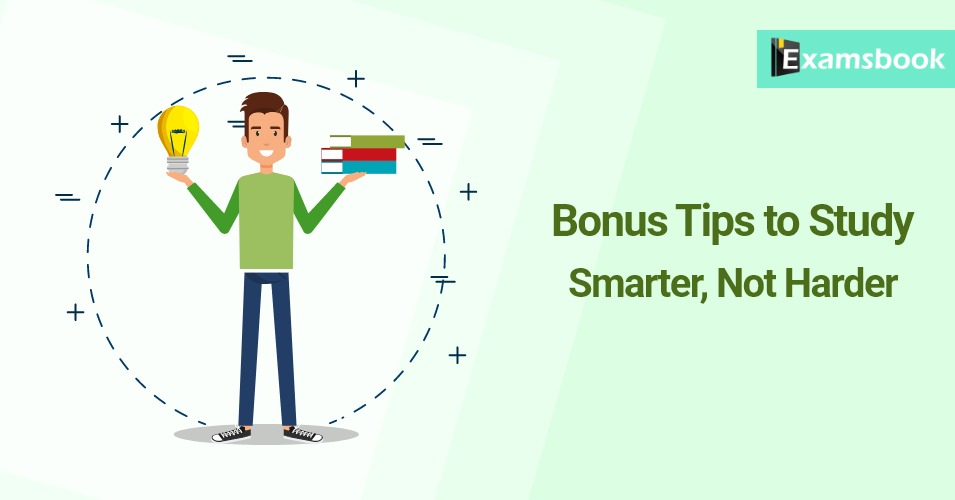


Have you often studied for hours with all your efforts and still could not get the results you desired? Definitely, both hard work and smart work are required to desire good results, but smart work can give better results in less time.
Everyone's learning journey is unique and different; doesn't it mean you are an early bird or a night owl? Only a strategic plan and intensive study sessions in short hours can yield results that even a whole day's study could not.
So, in this article, we offer smart study tips to help you quickly identify your learning style and study.
Of course! Here are some scientifically proven study methods to help you study smarter:
# Use Memory Techniques: Employ memory techniques like mnemonics, acronyms, and visualization to enhance your memory retention and recall. It helps reinforce your understanding.
# Study Like It's Your Job: Treat study at par with a salaried job. In a job situation, you need to complete 8 hours of work. Similarly, adopt the same attitude when you sit for the study session. Treating studies like a job can help you be more consistent, focused and productive.
# Focus on Weak Areas: Identify your weaker subjects or topics and prioritize them in your study schedule. Spending more time on challenging areas can lead to significant improvement.
# Track Your Progress: Keep a study journal or use study apps to track your progress and monitor how much you've accomplished. It can motivate you and highlight areas that need more attention.
# Utilize Study Apps and Online Resources: Numerous online resources and study apps offer interactive learning experiences, practice tests, and supplemental materials.
# Practice Time Management: Learn to manage your time effectively during study sessions and exams. Allocate more time to complex subjects and ensure you complete all tasks within the set timeframe.
# Stay Consistent: Establish a regular study routine to create a habit of learning. Consistency is critical to long-term academic success.
# Ask for Help: Don't hesitate to seek help from teachers, professors, or classmates if you struggle with a concept. Getting clarification early can save you time and frustration.
# Stay Physically Active: Engage in regular physical activity or exercise. It can improve blood flow to the brain and enhance cognitive function.
# Limit Distractions: Find a quiet, dedicated study space and minimize distractions like social media, notifications, and unrelated websites during study time.
# Practice Deep Work: Embrace the concept of deep work, which involves focusing on a single task without distractions for an extended period. It promotes better concentration and productivity.
# Switch Study Locations: Occasionally change your study environment. Studying in different places can help prevent monotony and increase your brain's responsiveness to new information.
# Utilize Practice Exams: Practice exams can help you simulate actual exam conditions and identify areas that need more attention. Use them as a diagnostic tool for your progress.
# Stay Curious and Ask "Why": Cultivate a curious mindset and always question why things work the way they do. Understanding the "why" behind concepts makes them more meaningful and easier to remember.
# Stay Healthy During Exam Time: During exam periods, prioritize your health by maintaining a balanced diet, getting enough sleep, and managing stress effectively.
# Avoid Multitasking: Focus on one subject or task at a time. Multitasking can reduce your overall efficiency and hinder deep understanding.
# Review Before Sleep: Examine your study material before sleep. This technique can enhance memory consolidation during sleep.
# Teach Yourself Out Loud: Verbalizing the material you're studying can reinforce your understanding and memory of the content.
# Stay Positive About Mistakes: Embrace mistakes as part of the learning process. Instead of getting discouraged, use them as opportunities to improve and grow.
# Connect Concepts to Real-Life Examples: Relate academic concepts to real-life scenarios to make them more relatable and easier to understand.
# Practice Gratitude: Take a moment to appreciate the opportunity to learn and grow. A positive mindset fosters a more productive learning experience.
Studying smarter doesn't mean avoiding effort; it means optimizing your efforts for better results. Experiment with these effective study techniques and find the ones that resonate with you and your learning style. Be patient with yourself and stay committed to continuous improvement.
Happy studying!
Get the Examsbook Prep App Today